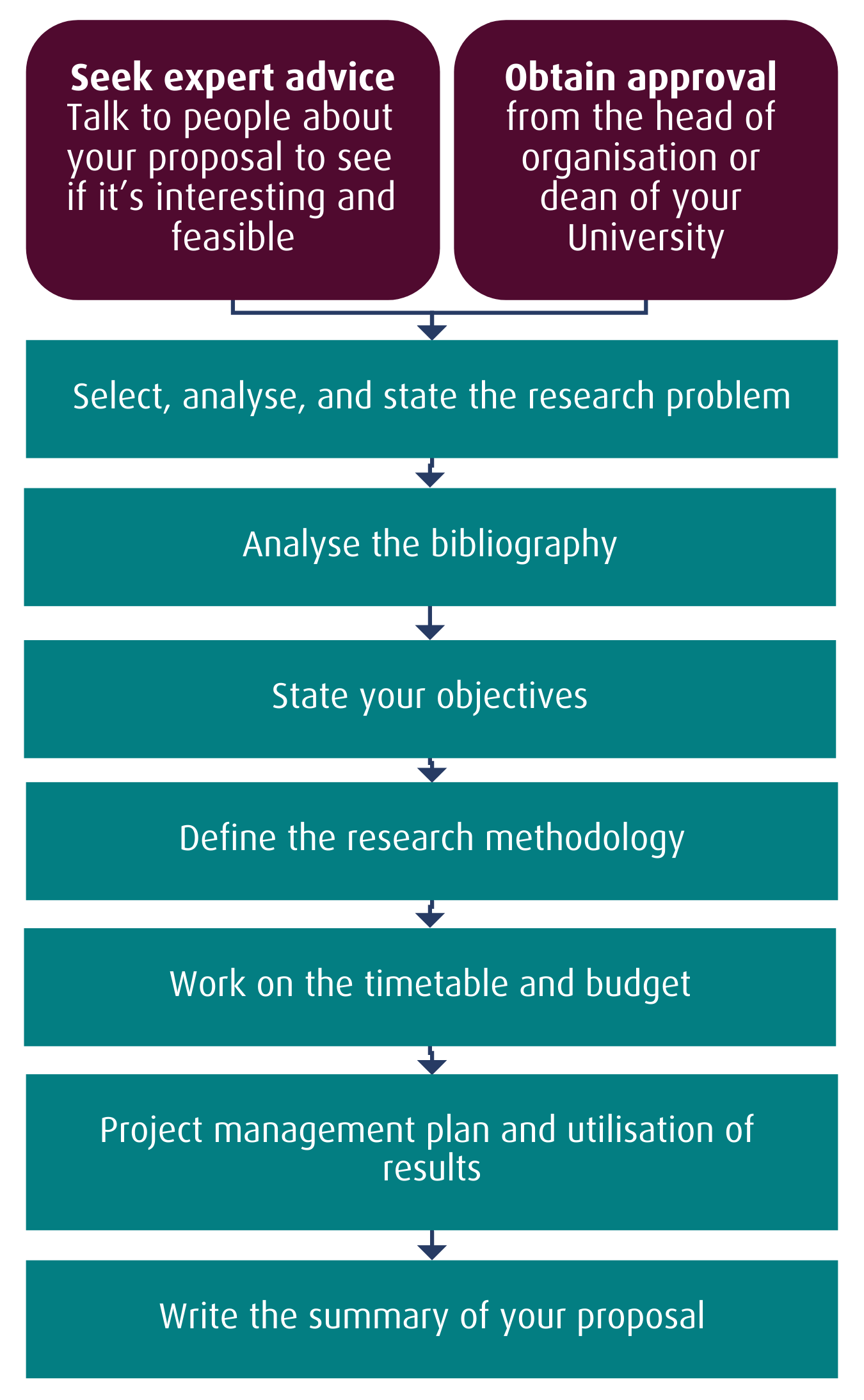
What is the purpose of your grant proposal?
To convince a reviewer that your project idea is significant, worth funding, will create an impact in the focus area of their interest, and that you can carry it out.
A competitive or persuasive proposal is written with an eye or perspective of the reviewer and is aimed at convincing a particular funder that:
- Your idea is important to them and their priorities
- Your suggested approach will successfully deliver something meaningful
- What they will get will be a good value for money
- You and your team are eligible for funding and competent to undertake your work.
What is in the funding agencies' minds?
Funding agencies may belong to the public or private sector and they have the primary goal of granting funds to worthy projects.
|
The funding organization’s evaluators have many proposals to read. So, they want to find out quickly the answers to these questions:
|
Panel procedures in the funding agency
- Stage 1 → prioritisation
- Stage 2 → commissioning
- Both → advisory committee
Start early
Grant writing is an arduous, time-consuming process. Here are some starting tips:
- If you have written a grant application earlier, there is no need to recreate the new application from scratch. You can ingeniously recycle sections into the new proposal.
- If not, construct a plan and course of action, make a checklist of materials you want to submit (letters of support, for example) and find alternative solutions for unobtainable items and documents.
- Authorities and potential partners (MOH, Health Programs, NGOs) must be contacted at least a month before the application deadline

Remember, as a scientist you must:
WRITEResearch is not only pipettes, tubes, plates, labs, or field work. A researcher spends considerable time writing grants, papers, reviews, reports, plans and emails. |
ENGAGEEngage with people. Go to meetings, conferences, workshops (locally or internationally) and be active in them. |
RECORDKeep a record in your notebook or computer of what you’ve done so that the work can easily be understood and repeated by someone else. |
PLANLook for potential calls for proposals and commit to submitting a research proposal in the next 6, 9 or 12 months. |
TAKE CARE OF YOURSELF!Brains work better in healthy bodies. |
